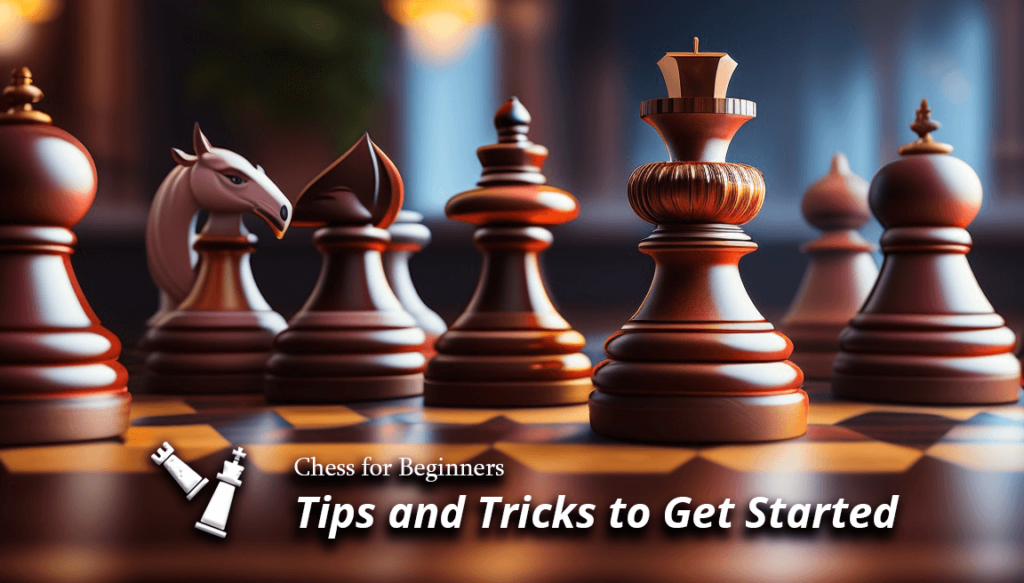Tips and Tricks to Get Started
June 14, 2023
Welcome to our comprehensive guide on chess for beginners. Whether you’re a complete novice or have some basic knowledge of the game, this article is designed to provide you with the essential tips and tricks to get started on your journey to becoming a skilled chess player. Chess is an ancient game of strategy and intellect, and with the right approach and practice, you can improve your skills and enjoy this fascinating game to the fullest.

Understanding the Basics
1. The Chessboard and Pieces
The chessboard consists of 64 squares, alternating between light and dark colors. Each player starts with 16 pieces: one king, one queen, two rooks, two knights, two bishops, and eight pawns. The objective is to checkmate your opponent’s king, which means putting the king in a position where it is under attack and cannot escape capture.
2. The Movement of Pieces
Each piece moves in a specific way. The king can move one square in any direction, while the queen is the most powerful piece, capable of moving in any direction along ranks, files, or diagonals. Rooks move horizontally or vertically, bishops move diagonally, knights move in an L-shape, and pawns move forward but capture diagonally.
3. Opening Principles
The opening phase of the game is crucial for setting up a strong position. Focus on controlling the center of the board, develop your pieces to active squares, and ensure the safety of your king by castling. Study various opening strategies and familiarize yourself with common opening moves to gain an advantage in the early stages of the game.
Essential Tips and Strategies
1. Develop a Strong Foundation
To become proficient in chess, it is essential to build a solid foundation of knowledge. Invest time in studying the basic principles, including pawn structure, piece development, and endgame techniques. Familiarize yourself with popular chess openings and understand their underlying concepts.
2. Practice Regularly
Consistent practice is key to improving your chess skills. Play regularly against opponents of varying skill levels, both online and offline. Analyze your games to identify your weaknesses and learn from your mistakes. Solving chess puzzles and studying annotated games by masters can also enhance your tactical and strategic understanding.
3. Master the Endgame
Endgame mastery is a crucial aspect of becoming a strong chess player. Study different types of endgame positions, such as king and pawn endings, rook endings, and minor piece endings. Learn fundamental endgame techniques like the opposition, zugzwang, and triangulation. Understanding endgame principles will greatly improve your chances of converting an advantage into a victory.
Resources for Further Learning
Chess is a vast subject, and there are numerous resources available to deepen your understanding and enhance your skills. Here are some recommended sources:
- Books: “The Complete Idiot’s Guide to Chess” by Patrick Wolff, “My System” by Aron Nimzowitsch, and “Silman’s Complete Endgame Course” by Jeremy Silman.
- Online Tutorials: Chess.com and Chessable.com offer interactive lessons, tutorials, and puzzles for players of all levels.
- Chess Software: Programs like ChessBase and Stockfish can help analyze your games and provide insights into your strengths and weaknesses.
